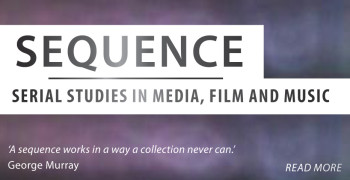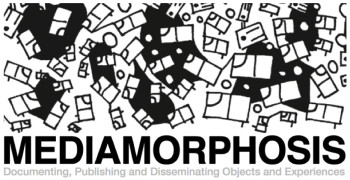
Against (Coloniality in) Anglophone Film Criticism: Bardo, False Chronicles of a Handful of Truths/Bardo, falsa crónica de unas cuantas verdades (Alejandro González Iñárritu, 2022)
Today at Mediático, for once, we are not, delighted. We are deeply sad at the loss of the great Ana M. López, who was very possibly one of the brightest shining stars in our field, and also a deeply wonderful human being who we were lucky to have known. It’s been hard to carry on the tasks of everyday academia these past weeks knowing that she is not in the world to be part of the conversation. But, as one collaborator said to me just a week or so ago, “We do the work to honour her”. Today then, in the spirit of honouring Ana, we present a metacritical post, about anglophone film criticism and Latin American cinema. It is also fitting that we should publish a metacritical work this week because Ana was, in addition to media historian and archaeologist, a sharp metacritical writer, mapping the field of Latin American film studies across multiple essays (1985, 1988, 1991, 1998, 2012). This post is, therefore, for you Ana.
Against (Coloniality in) Anglophone Film Criticism: Bardo, False Chronicles of a Handful of Truths/Bardo, falsa crónica de unas cuantas verdades (Alejandro González Iñárritu, 2022)
by Dolores Tierney
When Bardo, False Chronicles of a Handful of Truths/Bardo, falsa crónica de unas cuantas verdades (Alejandro González Iñárritu, 2022) was released last year, it was wrongly labelled as magic realist or magical realist by multiple film critics. To understand why so many anglophone critics labelled the film that way, we must interrogate (a certain kind of) anglophone film criticism, most often but not always, written by white male critics from the Global North, about films and filmmakers from the Global South.
Anglophone film criticism can be, unsurprisingly, colonialist. Jeff Middents has noted its coloniality in his excellent video essay about Aloft/No llores, vuela (Claudia Llosa, 2014) Elena Gorfinkel[i] has also railed against anglophone film criticism, in her masterful manifesto “Against Lists.” Mediático’s Special Dossier on Roma (Alfonso Cuarón, 2018) also pointed out the “coloniality” of some Global North perspectives on Cuarón’s Oscar winning film (Quijano 2007).
“Magical realist” is just one of the worn-out, and wrongly applied, area-based tropes anglophone criticism often uses to describe anything Latin American that is fantasy based, including other Iñárritu films like Birdman or the Unexpected Virtue of Ignorance (2014) or those directed by his compatriot Guillermo del Toro, such as El laberinto del fauno/Pan’s Labyrinth (2006),
This kind of criticism is rarely fluent in the cultures and languages of the films it reviews. Anglophone criticism calls Bardo annoying and self-gratifying but applauds Global North directors who make similarly metafictional, autobiographical films for breaking that fourth wall and mining their own life experiences and traumas.
Bardo’s perplexing scenarios cannot add up to magical realism because the film lacks the base line of what is also needed for magical realism to exist; a textually determined, matter of fact, real or realist register, out of which the magic can emerge. Everything in Bardo is dreamlike, surreal and heightened. None of the action is signalled as quotidian or prosaic. What we see, and importantly hear, in the film is not magical but —spoiler alert— the product of its protagonist Silverio’s (Daniel Giménez Cacho) dying mind. As he lies in a coma, his unconscious is replaying his memories, his films and the criticisms of his work and mixing them with the aural stimuli of what is going on in the room around his bed —a television news report from the worker who found a man (him) having a stroke on the train, his wife at his bedside talking to him, the voices of his brothers and sisters arriving to say goodbye, and even the beeps and wheezes of the medical machinery- to produce an imagined return to Mexico. It is this narrative of return that forms a major part of the film.
Bardo’s action is not magical realist because none of what we see in the film is signalled as real (the clue really is in the film’s full title). Admittedly, there are seemingly “magical” things in Bardo, including a man we see only as a shadow flying over the desert, a flooded Los Angeles Metro Rail with axolotls swimming about, a new-born baby expressing the desire to go, and then actually going, back into his mother’s womb.
This mistake about magical realism is not exclusive to film criticism. The term’s application to Bardo is indicative of the colonialist tropes about Latin America which the Global North frequently reproduces. In Encanto (Bryan Howard and Jared Bush 2021) for instance, Disney, produces a One Hundred Years of Solitude-like family saga that includes such features of Gabriel García Márquez’s 1967 novel as a sprawling house, yellow butterflies, and a tropical Colombian backdrop. Encanto’s writers and directors think that by applying a Latin American mode to the Disney style, they are being culturally authentic, but, like film critics writing about Bardo and, as explored in this podcast, Disney gets magical realism all wrong (Figure1).[ii]

Figure 1: The Family Madrigal (Encanto, Bryan Howard and Jared Bush 2021)
Film critic Carlos Aguilar’s account of Bardo, for American multimedia platform TheWrap,on the other hand, is a model of what we should expect from film criticism about the Global South. Aguilar knowledgeably notes Bardo’s dream qualities and logic and how, rather than indulging Iñárritu, the film lays bare the director’s self-criticism and insecurities. Most importantly Aguilar notes Bardo’s engagement with Mexican colonial history and politics and how the film foregrounds the people who have been disappeared and murdered because of years of narco and state-enabled violence. Aguilar also notes the relationship between Bardo and Iñárritu’s previous works dealing with issues of immigration and violence at the Mexico/United States border: Babel (2006) and his virtual reality installation Carne y arena (Virtually Present, Physically Invisible) (2017).[iii]
Film critics are compelled to review a lot of films in a short space of time and submit their review copy according to strict deadlines. Unlike longer form film journalists and academics they don’t have the time to weigh their words. With a lot of Latin American films, and under such time constraints, they seem to often revert to the same old culturally biased assumptions about films and filmmakers from the Global South.
Honouring the legacy of Ana M. López, a great and loving mentor, I call for a greater awareness on the part of film critics of our own positionality, and of the privileged, geo-cultural, classed, and raced positions from which we write.
To avoid coloniality in film criticism of the Global North about films and filmmakers from the Global South, we as film critics and film criticism more broadly needs to do better. We need more informed critics and editors and a more diverse pool of film critics.
List of Work Cited
Gorfinkel, Elena (2019) “Against Lists” Another Gaze Essays Nov 29, Accessed at https://www.anothergaze.com/elena-gorfinkel-manifesto-against-lists/
Leen, Catherine (2021) “Visceral Reality in Alejandro González Iñárritu’s Carne y Arena (Virtually Present, Physically Invisible)” Studies in Spanish and Latin American Cinemas 18.1, 37–55.
López, Ana M. (1985) “A Short History of Latin American Film Histories.” UFVA Journal 37, 1: 55–69.
López, Ana M. (1988). “An ‘Other’ History: The New Latin American Cinema.” Radical History Review 41 (Spring): 93–116.
López, Ana M. (1991) “Setting Up the Stage: A Decade of Latin American Film Scholarship.” Quarterly Review of Film and Video 13: 239–60.
López, Ana M. (1998). “Historia nacional, historia transnacional.” In Horizontes del segundo siglo: Investigación y pedagogía del cine mexicano, latinoamericano y chicano, edited by Patricia Torres San Mart.n, Julianne Burton, and Angel Miquel, 75–81. Guadalajara: Universidad de Guadalajara/IMCINE.
López, Ana M. (2012). “Palabras Liminales.” In Hollywood, Nuestra América y los Latinos, 5–10. Havana: Ediciones Unión.
Middents, Jeff (2019) ‘The National Auteur “Goes World”: Claudia Llosa and the Critical Responses to Aloft/No llores,vuela (Claudia Llosa, 2014)’ Tecmerin: Journal of Audio Visual Essays 2(1) Accessed at https://vimeo.com/346830647
Quijano, A. (2007) “Coloniality and Modernity/Rationality” Cultural Studies, 21, 2, 168–178.
[i] “Lists won’t create new canons – especially not of lost women, queer, trans, Black, Latinx, global south, decolonial and anti-colonial filmmakers
Who will ask Barbara Hammer, Kathleen Collins, Kira Muratova and Sara Gómez for their lists” (Gorfinkel, 2019)
[ii] It’s worth noting that the blanket application of magical realism to anything Latin American by film criticism, and Disney is a way of disavowing the cultural specificities and histories of a whole continent as “just that magical space down there” whilst, in reality, magical realism, as it’s conceived by García Márquez, is a fiercely political mode that was partly about acknowledging the complexities and absurdities of everyday life in a country deformed and brutalized by neo colonialist extractivist practices and violence.
[iii] For a wonderful exploration of Carne y Arena see Catherine Leen (2021)






